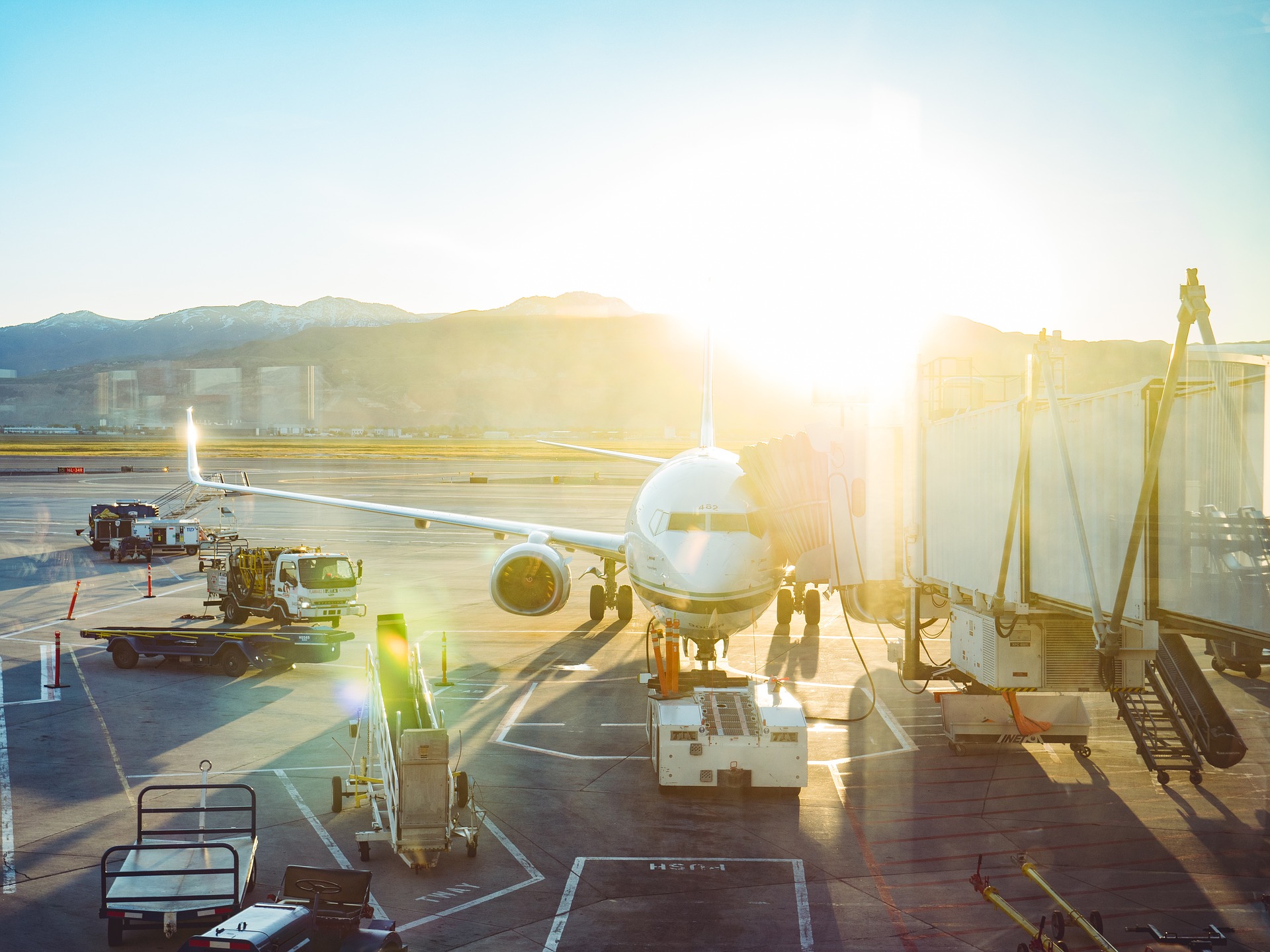I’ve chewed on this issue for several days, trying to place logic over emotion and seek pragmatism over pettiness. But I simply cannot support the sort of widescale bailouts that airlines, hotels, and even Boeing are now seeking.
First, let me note the unique time we live in. Like the events of 9/11/2001 and consequences that followed, this is the sort of black swan event that could have been vaguely imagined, but never predicted. As a general principle, companies should not have to operate in fear of events with a such a small likelihood of materializing that the opportunity cost of preparation presents an unacceptable drag on growth.
Furthermore, stock buybacks are not necessarily evil. Airlines, for example, spent 96% of their free cash on buybacks. That looks very foolish in hindsight. But as a general principal, share repurchases make sense for a number of reasons. Increasing shareholder value is the point of operating a for-profit company.
But without grossly simplifying the situation, here’s what I see. Airlines lived large and elected to use profits and cashflow to juice up stock prices and reward investors, rather than invest in a rainy day fund or a more sustainable future. Concurrently, airlines used consolidation and a strong economy to dismantle comfort and devalue loyalty programs. We were told this was necessary to keep fare prices low and for airlines to stay competitive.
Hotels, despite (or because of) a healthy economy, tacked on “resort fees” and other bogus charges while also devaluing loyalty programs in an era of consolidation. Share prices surged, but consumers were left with a raw deal, paying more for the same thing and being treated as expendable. Hotels also didn’t save for a rainy day.
And then there’s Boeing, the great American aircraft manufacturer who cut so many corners in the name of profit that two aircraft fell out of the sky and a whole fleet of aircraft remains grounded with an elusive fix that may never materialize. Look, I still believe experienced pilots would have avoided the two 737 MAX crashes. But that doesn’t remove the culpability on the part of Boeing nor does it in anyway mitigate the outrageous audacity of asking for a bailout after demonstrating a gross violation of the public trust.
Yes, But Is A Bailout The Least Worst Option?
Ok, you might be saying. The charges are all valid, but are we prepared to accept collapse? Isn’t the alternative worse? Wouldn’t a bailout be better than bankruptcy, considering the multiplier effect of airline and hotel jobs?
Here, I’ll honestly say I don’t know. But I don’t think anyone does. Just like few, if any, would have predicted the unprecedented effects of COVID-19 on the world economy, it is not clear the alternative to bailing out is a worse option. It doesn’t seem, to me at least, we are at that precipice like we were in 2008 after the fall of Lehman Brothers, where without swift and decisive action the global economy falls like a string of dominoes.
Thus, I apply a “he who lives by the sword shall die by the sword” mantra. If airlines and hotels need a bailout, let shareholders be punished first; let bankruptcy be declared.
I realize, of course, that is is not just rich fat cats who own stocks. My mother is a nurse, my father a teacher, my brother an accountant, and I am self-employed. We are all stockholders, either directly or via 401(K), Roth IRAs, or other funds that serve as investment vehicles.
Bankruptcy would hurt employees, hurt “the middle class”, and do far more damage than just hurting the hedge fund managers and 1%.
But this is a better option than using taxpayer dollars to prop up favored industries. Shareholders reap the greatest reward and must now reap the consequences. This is not 2008 and hotels and airlines are not banks; their bankruptcy and reorganization does not present a systemic risk to the world economy.
But If We Embark Upon Bailout Programs…
I consider it a foregone conclusion that the President, out of a desperate lust for re-election, and Congress, because of their ability to add self-beneficial pork, will bail out airlines and hotels.
The question becomes should strings be attached to this bailout? View from the Wing argues eloquently why the answer is no. I agree with him, in theory, but if the U.S. government foolishly embarks upon helping airlines and hotels, it should at least condition how that money is spent.
Take a step back. The U.S. Labor Department just reported that jobless claims rose to 281,000 last week. Those numbers will rise drastically in the weeks and months ahead as the economy contracts. The world is shutting down to a degree I have never seen and it will not be long before vast swaths of the American economy are deeply hurt, with workers laid off or facing dramatically reduced hours. Sadly, 78% of Americans live paycheck to paycheck. What should the federal government do? What can it do? Is embarking upon the next New Deal or helping employees directly a better use than bailing out companies?
With that in mind, any money, if granted, should be directed to care for employees. They will soon bear the brunt of the burden and bail out money should not be used to pay off creditors before taking care of workers.
Also, any bailout money should be granted in the form of loans, not gifts.
CONCLUSION
We live in a quasi-free-market system. Thus, creditors need to suffer. Shareholders need to suffer. And yes, I know that means most of us, indirectly, will suffer. But throwing money at airlines, hotels, and Boeing strikes me as an unwise approach when the whole economy is shutting down.
My small business is struggling. Our suppliers and customers are hurting. So are local coffee shops and restaurants. What makes big airlines, who have alienated employees and wasted cash reserves, more deserving of a bailout than small businesses? Should I then hire 20,000 people this week and then go begging to Uncle Sam that I am too big fail?
There are no easy answers here. But I find the answer of bailing out airlines and hotels, just because they took an early hit, wholly unpersuasive. After treating us as expendable for so long, I now view airlines and hotels as expendable. Oh, airlines and hotels are vital for the economy. But are any specific airlines and hotels vital? Let the market decide.





“Increasing shareholder value is the point of operating a for-profit company”… precisely the problem with the current thinking and why the quality of goods and services has declined so dramatically in the US over the years. Shareholder value is ONE of the factors but not “the point”. Perhaps if CEOs weren’t rewarded solely on shareholder value but on other objective criteria such as product quality, workforce loyalty, positive brand recognition then we wouldn’t be the mess we are in. Between overpaid CEOs and feckless Boards of Directors , US companies are trapped in a downward spiral of mediocrity, just look at American Airlines. All that said, it is disingenuous for American business to come begging fro handouts when thet just got the biggest boost to their bottom lines with Mr. Trump’s corporate tax cut in 2017… where did the money go? Oh, yeah, shareholder value.
CEOs should have most wealth tied up in company stock for at least 10 years beyond leaving the company.
Also I support low income taxes but very high, about 90% estate taxes. America was found as an answer to old European aristocracy. We got rid of kings and lords and their claims of inter generational wealth. America is where people are self made. But we don’t allow kings. Republicans want to create inter generational wealth that is endemic. They want some families to be rich for generations and all the other incomers be wage slaves to these families. Republicans are creating a Europe all over again with feudal lords that get their wealth in inheritance and all others keep working in service of these feudal lords for generations. Already see this with the trump clan. Republicans are assholes.
Absurd!! There is no need for a bailout or corporate stimulus! Let the Market decide. Survival of the fittest. There are too many airlines & hotels. If 50% fail because management did not plan for the rainy day, that is poor management. Let the affluent investors buy the assets for pennies on the dollar & create new business without cost to the taxpayers. Taxpayers simply can’t afford to support bloated industries during each economic downturn. This pandemic will significantly reduce Airline use, & many other businesses for a few years. Why should Airlines & Hotels get preferential subsidy. Help the truly needy…Not corporations. Let the Market decide. When customer demand returns, someone will reinvest to fill the demand without cost to government taxpayers.
I see my income falling 50%. I will survive if Covid19 lasts 2 years. Hope not longer. Yikes
“I realize, of course, that is is not just rich fat cats who own stocks. My mother is a nurse, my father a teacher, my brother an accountant, and I am self-employed. We are all stockholders, either directly or via 401(K), Roth IRAs, or other funds that serve as investment vehicles.”
This is how Republicans distract dumb Americans. Let’s have taxcuts. I will get a million and you will get a thousand. Most Americans give up a quality of life worth ten thousand to get a tax cut worth a thousand. The thousand is immediate, tangible. The ten thousand in quality of life is ephemeral, and in the future. Any wonder Americans are stupid and don’t save enough for retirement. They also give up a lot to corporates but run to Europe to enjoy old world charm. Europe is socialist. The younger generation is smarter. Millennials save like crazy for retirement and they also seem to have a more socialist bent. Any wonder older Americans are republicans and younger are Democrats?
Which brings me to my next question, about why am i quarantined to save the hide of an older Republican? These older Republicans understand capitalism. They know it’s every man for themselves, winner takes all. This virus is nature’s way of clearing dead wood, killing older, useless people and making way for more efficient younger people. America is about efficiency. America should embrace this virus and allow it to clear away old rotting dead wood.
I wish you were not so incendiary, because I think your point about tax cuts is an excellent one that should be front and center as another round of foolish and short-sighted tax cuts are discussed.
When your hair is on fire you forget to say please and thank you.
Anyway this blog is my outlet. I appreciate you not banning me. Most blogs would have banned me by now. But most Americans pay lip service to freedom of expression and first amendment rights. They throw those words around without meaning it. Very few actually mean it. I think true conservatives are probably the only who would defend first amendment rights unequivocally. Most republicans today are not conservatives.
I work for a company owned by the “old male Republican scum” you love to demonize. He pays 100% of our health insurance, paid a guy for nearly two years after he basically couldn’t perform his duties anymore because of dementia, provides us lunch daily for free, and offered us as much sick leave as we needed for coronavirus even before the government agreed to cover it.
So tell me, what have the Democrats who run your area done for you?
if you were more principled you wouldn’t have to go to the principal’s office…
“United, for example, spent 96% of its free cash on buybacks. That looks very foolish in hindsight.”
United did not spend 96% of free cash on share buybacks- the industry as a whole did 96%. Please reread the Bloomberg article and correct. It’s very misleading.
That was an error. United spent 80%. Thanks.
Thank you but you didn’t go any where deep enough. I know the airline business models quite well having made a few of them myself in the past 55 years. As a group, they are greedy and have very little thoughts of the flying public as has been fully documented over these many years. Ourgovernment has exasperated this scenario with all the idiotic legislation during the Carter era. Enough said, “so mode it be”….
Airlines and hotels are critical players in the economic recovery that is bound to happen after this is all over. Business and leisure travel contributes to the growth of the economy as a whole. I think that if the situation gets worse a limited bailout is in order:
– loans, not grants
– conditioned upon airlines not raising bogus fees and hotels scrapping resort fees for the customer, increasing worker protections, freezing executive pay increases and limiting stock buybacks.
+1 – very sensible, in my opinion.
In ordinary recessions, I would agree with you – bailouts to vital industries should come with heavy strings attached, and the shareholders should suffer a large equity cull before the government infuses cash – and should get to own heavily preferenced shares for the bailout.
However, this is not a normal recession. It has not been triggered by the market – it has been caused by government policy becoming that it actively does not want the GDP / business of whole sectors to preserve public health.
Government is asking or enforcing that whole swathes of the economy become non-viable on customer sales for 3/6/12/18 months (however long it takes).
The correct solution to this is that Government steps in and to pick up a large part of that missing revenue – but it must do it in a way that doesn’t make the economic activity happen as that defeats the point of the enforced closure in the first place – so it must send business’s cash.
Something like the Danish solution of government pays 60% of your wage, business 20% and you take a 20% pay cut. Send the cash and make it conditional on 80% of last year’s wage bill being maintained (say upto 70K per employee)
This is a far better solution than sending individuals monthly cheques because the only way that keeps, for example, United Airlines, in business, is either if they go travelling which (a) government does not want, and (b) they probably won’t spend it on leisure items right now anyway. It would just make it less bad when UA cut staff – but that will slow the rebound as rehiring your staff takes time and money…
I agree with your points. If shareholders take the hit, then you would hope that the ultimate reaction would be to fire the executives responsible for the short-term planning that got them into this situation so quickly or to redirect the companies’ strategy once the economy is a little healthier.
I think loans is the right answer – while we who read this blog are very much invested in having a continuing travel industry, but at the end of the day, airlines and hotels serve a disproportionately high-income slice of the populace. Given that, I’m not sure that the overall tax base should be responsible for handing these companies a strings-free handout to get them out of a situation that could have been mitigated or avoided for more than the two weeks we’ve had since demand fell off a cliff. I think these loans should also be made contingent on continuing to pay furloughed employees so that people continue to have money in their pockets to spend on goods and services such that the economy continues to function. And perhaps executives should be asked to forego pay, as Ed Bastian did voluntarily.
Loans are not the right answer. Convertible bonds are the right answer. Limit your downside, share in the upside. But the party of the capitalists will give a sweet heart to their friends while screwing the owners of the capital, the taxpayers. Just watch and see. Oh and the obligatory, Republicans are assholes.
As someone said, put Elizabeth Warren in charge of this bailout program.
Someone on Cranky Flier’s blog had an interesting proposal that at least deserves some consideration. The gist of it is you have companies issue convertible preferred securities to the government, with a basically nil dividend rate today, which increases to more of a market rate in two years. The government has the right to convert to common and dispose of the shares in the public market at any time. If you’re paranoid about government ownership, then put in some kind of a sunset clause that causes the preferred securities or the conversion option to expire after some period of time. As the government converts the securities, the existing shareholders, including execs, take a hit as they get diluted.
Otherwise, I would support loans, NOT a giveaway, contingent on the loan proceeds being used to fund worker salaries and benefits. Put in a cap to where both the company and the higher compensated employees (most likely management) have to share some percentage of the pain (something similar to what Richard proposed). This is similar to the proposals I’ve seen floating around for the small business lines of credit to maintain payroll until the lockdowns are wound down.
Edit to add: if you’re uncomfortable with the concept of “bailouts” (I usually am as well), there’s another way of thinking about this. What you effectively have is the government, through the powers of state and local public health authorities, engaging in an eminent domain action, whereby they are justifying the “taking” from a private business (through orders which restrict or eliminate the ability of the business to use its assets and labor to produce revenue) for a “public use” (to prevent the spread of a health hazard). Therefore, I think the government does have a duty here to step in and compensate businesses, whether through direct subsidies or loans, for the consequences of these enforced lockdowns. I would prefer that compensation be targeted at the small businesses that don’t have the resources to weather 6 weeks, let alone 6 or more months, of reduced business, but we all know the big boys are going to want their pound of flesh.
It’s an interring issue, to be sure. Fundamentally, I’m not convinced this is necessarily a taking, as defined in the Fifth Amendment and interpreted by the SCOTUS.
The Supreme Court has had a difficult time articulating a test to determine when a regulation becomes a taking. It has said there is “no set formula” and that courts “must look to the particular circumstances of the case.” The Court has identified some relevant factors to consider: the economic impact of the regulation, the degree to which the regulation interferes with investor-backed expectations, and the character of the government action.
While not directly on point, Justice Brandies wrote for the Court that a regulation adopted under the police power to protect the public health, safety, or welfare is not a taking, even if the taking reduces the value of property. (This is now called the Mugler-Hadacheck test).
I should have clarified. This may not constitute a “taking” in the legal sense, though I’d be curious what a court might think of the unprecedented nature and scope of these indefinite, industry-wide shutdowns on the basis of public health. However, I think we should look at this through the lens of the same principle. If the government is going to shut down our businesses indefinitely in the name of protecting us, then I don’t feel particularly bad in asking them to help us out in some way. I.e., for the most part, it’s not a case of businesses or industries engaging in bad behavior like during the financial crisis and then demanding a handout.
During 10 years of being fat and happy, people who saved for a rainy day were ignored. Now that day is here and everyone wants a piece of what we have saved. In the words of a prominent political figure, “Sad!”
I know there are trade-offs to every decision, but if a business doesn’t keep enough cash on hand to weather a 3-6 month crisis, aren’t they implicitly agreeing to go under (bankruptcy) when that crisis inevitably hits?
Bravo!
I 100% agree. Sorry you cant have a capitalist society without risk. Companies need to plan for events like this because really they’re not that rare, they happen every 8-10 years (9/11, housing crash, coronavirus, etc etc).
We have systems in place to deal with companies that make poor choices, file bankruptcy, rebuild, make better decisions in the future.
Matthew, you’ve obviously given this issue a lot of thought and your points are eloquently made. Whether or not one agrees with your reasoning I will commend you for paying a lot more attention to proofreading as the (almost total) lack of errors here makes for a far more enjoyable reading experience and allows you to deliver your arguments more persuasively.